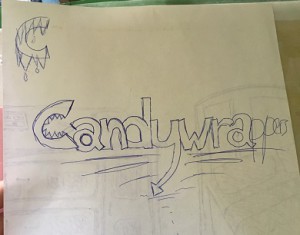The musician Prince died recently. As he would have put it, “Life is just a party, and parties weren’t meant to last.” A guide for the curious on how to appreciate this guy’s music:
1. Ignore the overhype. The first thing to watch out for, if you’re new to Prince’s music, is the effect of his hard-core fans, the worshipers. I once had a friend compare the Purple One to Mozart. In a word: No. The problem with these people – I love your enthusiasm, guys, it’s charming, but – is that they’re setting you up for disappointment. When you check out Prince’s music and find it’s not Mozart-level, you might become disgusted and think, “It’s all BS.” Actually it’s not all BS, but the problem is that no one could live up to the expectations his hard-cores will set up in your mind, and the disappointment will annoy you.
What Prince actually was, mainly, was a guy who wrote a lot of good pop music. Pop music is its own area of the musical universe, with clear and reasonable standards, and hooray for it. For example, one of its standards is that a person with no formal musical training should be able to enjoy it. I.e., it should be accessible. Hence “pop,” short for “popular.” (I’ve had some musical training and enjoy certain kinds of esoteric music, but that’s not pop’s bailiwick.) Pop music is not, and is not designed to be, artistically brilliant. It is unfair to a pop artist to judge him by the standards of artistic genius.
In this sense, Prince is like a less extreme case of the Beatles. The Beatles were a solid band who wrote some good pop tunes, and good for them. But due to some weird combination of circumstances which I’ve never figured out, they became feted as the best thing to happen to humanity since the taming of fire. Because this assessment is moronic – in fact, a significant chunk of their oeuvre is downright boring – one’s instinctive reaction is, “The Beatles suck!” Well, they don’t totally suck; they did have some good stuff in with the boring stuff. They just fail to live up to the ridiculous hype with which the Baby Boomers surrounded them. No one could live up to that hype. If you’re not acquainted with their music and you give it a listen, after hearing the hype, I guarantee you’ll be underwhelmed. But that’s the hardcore fans’ fault, not the Beatles’. It’s the same with Prince.
2. Guitar skill. While the alleged Eric Clapton quote about Prince being the world’s greatest guitarist is a fabrication, he was pretty good on the axe. For readers who are knowledgeable about the guitar, this will be the pleasant surprise about Prince. Remember how above I said the guy is overhyped? Well, given that, the freakin’ bizarre thing about him is how underhyped his guitar playing was. How do his hard-core fans miss this? Well, maybe they don’t miss it, and I’ve just missed their ranting about it. But seriously, listen to When Doves Cry, the opening measures and a passage from around 3:45 for several measures afterward. (You have to have the full-length version for this; the radio version and the Greatest Hits version are truncated.) I think his image as a pop god caused everyone to overlook his instrumental skill.
3. Eclecticism. E.g., the random Ravi Shankar-like sitar inserted into “7” at random moments. The combination of pure light-pop dance-y numbers like Raspberry Beret and more thematically serious material like Sign O the Times (warning: crack gangs, machine guns).
4. Humor. “‘…’cause if you don’t I’m gonna explode, and girl, I got a lot.” LOL. My understanding of Prince’s music expanded when I realized there was a lot of humor. Once you listen for it, you hear it all the time.
5. Recommended entry points:
Albums: 1999, Purple Rain.
Songs:
● 1999 (from 1999)
● Little Red Corvette (from 1999. Warning: One line of the lyrics is really gross)
● When Doves Cry (from Purple Rain. Why does When Doves Cry sound, in some undefinable way, different from most other pop songs you’ve ever heard? I’ll put the answer at the end of this post so as to avoid giving it away.)
● The title track from Purple Rain isn’t bad either. What’s that? Did I hear some hardcore in the back shout, “It’s genius, man! It’s genius!” Sit down, fanboy, and catch your breath.
● Thieves in the Temple (from Graffiti Bridge)
● 7 (from the Love Symbol Album)
● Thunder (from Diamonds and Pearls)
● Sign O the Times (from Sign O the Times).
● He also wrote Nothing Compares 2 U, and there are two (at least) performances of it, one by Sinead O’Connor and one by His Purple Majesty himself. Weirdly, O’Connor’s performance is the better, IMHO.
– – – – – – – – – – –
Why does When Doves Cry have a unique sound? The song has no bass line(!), which is very unusual for this kind of song, i.e., an up-tempo Top-40 pop tune from the 1980s. In fact, within that set of songs, it’s probably not just unusual, but unique. Apparently Prince let his bass player add a bass line was when the song was played live, but why? The song hit #1 without any bass! Give the people what they want! And let the bassist go grab a beer!



